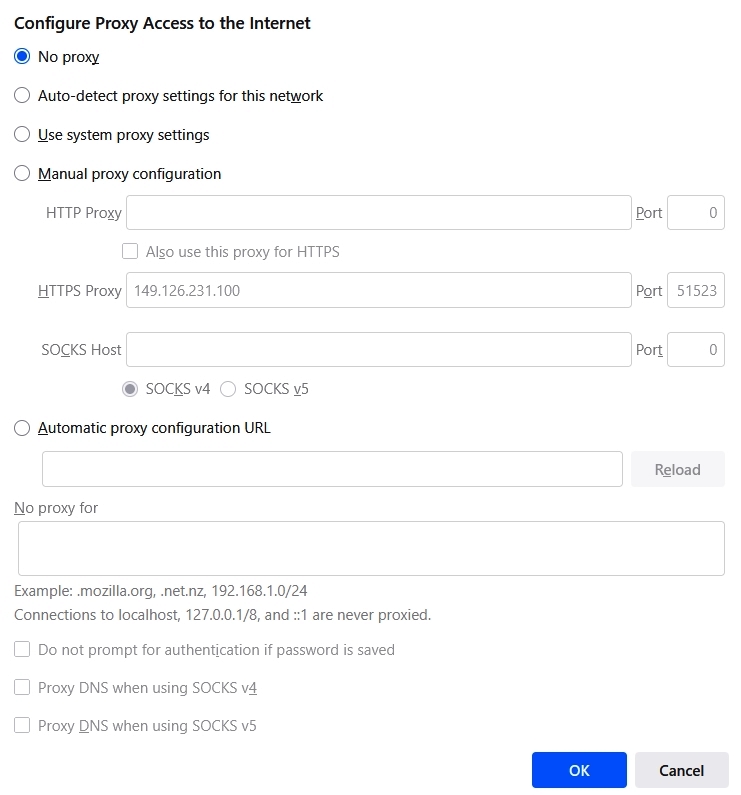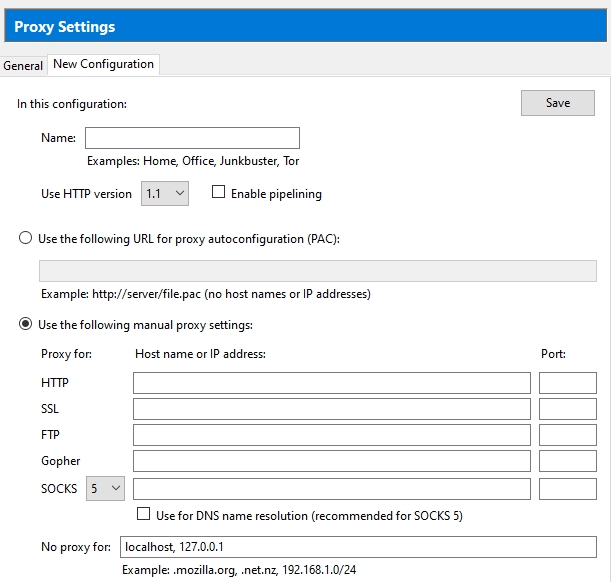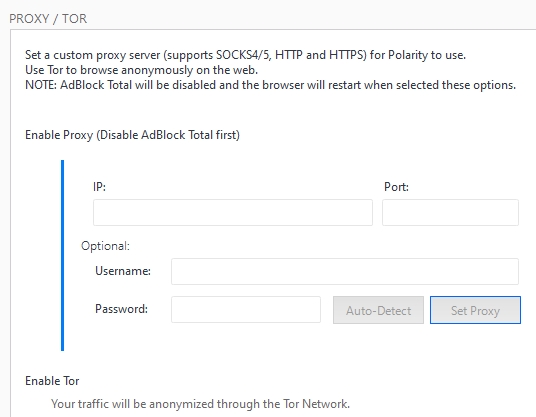IPv4
From $0.72 for 1 pc. 37 countries to choose from, rental period from 7 days.
IPv4
From $0.72 for 1 pc. 37 countries to choose from, rental period from 7 days.
IPv4
From $0.72 for 1 pc. 37 countries to choose from, rental period from 7 days.
IPv6
From $0.07 for 1 pc. 14 countries to choose from, rental period from 7 days.
ISP
From $1.35 for 1 pc. 23 countries to choose from, rental period from 7 days.
Mobile
From $14 for 1 pc. 18 countries to choose from, rental period from 2 days.
Resident
From $0.70 for 1 GB. 200+ countries to choose from, rental period from 30 days.
Use cases:
Use cases:
Tools:
Company:
About Us:
Choosing the best proxy browser in 2026 requires a careful look at what each product can do. Modern options vary in how deeply you can tune connection settings, how well they prevent data leaks, and how convenient they are for handling multiple profiles.
This review covers 10 special browsers suited to different tasks – from secure browsing and protecting personal data to managing multiple accounts and running online streams.
A regular browser connects to websites directly, exposing your real IP address and device details. A proxy-enabled one routes all traffic through an external server that masks your IP and overrides the system’s reported parameters. This approach helps you access regions‑restricted content and isolate sessions from one another.
If you want a step-by-step example of configuring a proxy in the Lalicat Antidetect Browser, you can find a dedicated guide here.
Such a solution gives you traffic isolation and connection management that standard tools don’t offer.
These benefits make such solutions useful for everything from multi‑account workflows and geo‑testing to analytics and safe everyday browsing.
Below we consider what is the best proxy browser and for what use cases. Their internet connection settings are built into the UI and work independently of system‑wide network parameters. All of them are free and available from the developers’ official sites.

Firefox is available for Windows, Linux, and macOS, as well as Android and iOS. It offers one of the best balances of flexibility and stability.
Features:

A practical limitation is the lack of builtin profile switching.

LibreWolf is an open‑source fork of Firefox with the same proxy settings.It adds online privacy protections that are not enabled by default in standard Firefox:
LibreWolf is available for Windows, Linux, and macOS, but there are no mobile versions.
Note: The connection settings UI in Firefox and LibreWolf is identical because both are built on the Gecko engine.

A lightweight Windows browser built on Gecko.
Capabilities:

K‑Meleon is available only on Windows.

A QtWebEngine‑based browser developed by the KDE community. Officially supported on Linux (Snap Store, Flathub, distro repos) and FreeBSD. Unofficial builds exist for Windows. It stands out for simplicity and low resource usage.
Features:

Limitations include the lack of PAC script support and no ability to store multiple configurations.

A lightweight, power‑efficient browser for Windows and Android (official releases available).
Highlights:

This project is maintained by a small community, so features evolve more slowly than in major competitors.
This category is convenient if you want the solution without manual setup. Keep in mind that built‑in solutions are usually less flexible than browsers that let you use your own intermediaries.

Tor is the classic anonymity‑focused browser that routes internet traffic through a chain of intermediary servers.
Features:
Tor is the best proxy browser for anonymous access to the internet. The downside is potential speed reduction due to multi‑hop routing.

Epic’s defining trait is a “privacy‑by‑default” mode: protections and filters are active immediately after installation.
Features:
Epic can be a good fit for users who value a simple starting experience. A limitation is the relatively small catalog of compatible extensions.

A European privacy‑oriented solution designed with GDPR standards in mind.
Features:
UR works well for day‑to‑day use. Because it is still in “beta”, it may lag behind top‑tier browsers in compatibility with some extensions.

A cloud‑based architecture: all traffic is first processed on the developer’s servers where pages are rendered and compressed, and then delivered to the user.
Features:
Puffin is often chosen as the best proxy browser, especially on mobile devices. The trade‑off is that all traffic flows through the company’s servers, which reduces privacy control and ties functionality to the provider’s infrastructure.
On the desktop, Puffin Secure Browser is free. Advanced features are offered via the Puffin 365 subscription at $2–$5 per month (plan‑dependent).

A mobile‑first browser with VPN and proxy available by default. It is widely used on Android and iOS for its focus on privacy and smartphone convenience.
Features:
Aloha is free to use. Aloha Premium adds advanced capabilities. Pricing varies by region and averages €9.99 per month or €79.99 per year. The subscription is not tied to a single device; if you sync via an Aloha account, you can activate it on up to five devices simultaneously.
See also: “Best Mobile Anti‑Detect Browsers” – a curated list of tools for privacy protection and multi‑account work on Android and iOS.
In many cases, built-in proxy settings are sufficient. When you need more sophisticated masking or large‑scale operations, consider anti‑detect solutions such as Lalicat, MuLogin, or GoLogin.
What they offer:
These are professional‑grade tools for multi‑accounting, fingerprint management, and secure workflows.
Such solutions are useful for everyday use (media, social networks) and professional workflows such as analytics, web scraping, and QA testing. Below are recommended options for key scenarios.
| Task | Solution |
|---|---|
| Streaming and multimedia (access to Netflix, Hulu, YouTube without regional restrictions, faster loading) | Puffin, Aloha |
| Web scraping and research projects (data collection, SERP testing, regional usage) | Firefox, LibreWolf, Polarity |
| Privacy and censorship circumvention (anonymous access, protection from tracking, use in countries with restricted internet) | Tor, Epic Privacy Browser, UR |
| Everyday use (regular browsing, email, social media) | Firefox, UR, K-Meleon |
| Running on low-end devices (old PCs, budget smartphones, limited resources) | K-Meleon, Falkon, Puffin |
| Interface testing and A/B checks (comparing website display across regions, QA tasks) | Firefox, LibreWolf, Falkon |
In 2026, such browsers remain vital for managing multiple accounts, bypassing regional restrictions, and preserving privacy. They are widely used in research, testing, and other workflows where connection paths must be controlled.
Regardless of the scenario, proxy quality is the decisive factor – it determines speed, stability, and security. For choosing the right service for your needs, see our guide “How to choose a proxy: advantages and drawbacks of each type”.
A proxy routes only the browser’s traffic. A VPN inside the web client also encrypts that traffic, adding another layer of protection.
Yes – if the web browser supports profiles or separate configurations for different windows (for example, K‑Meleon). This is useful for multi‑account workflows or testing regional site versions.
Connection speed is primarily determined by proxy characteristics. Overloaded or distant nodes often cause latency.
Free options are often unstable and unsafe. For recurring workloads, paid solutions (IPv4/IPv6) – mobile, residential, or ISP – are recommended for stable connections and lower risk.
